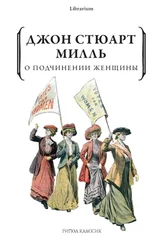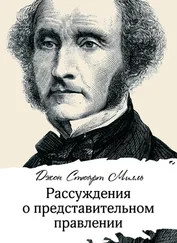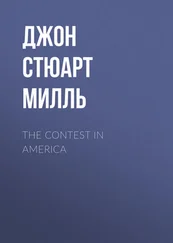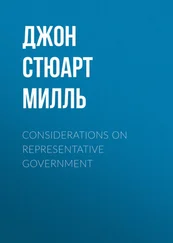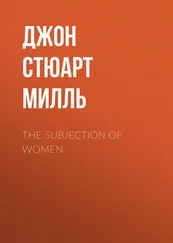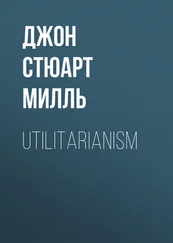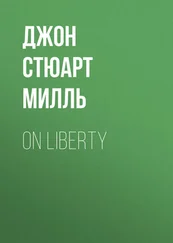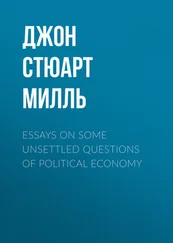Джон Милль - Autobiography
Здесь есть возможность читать онлайн «Джон Милль - Autobiography» — ознакомительный отрывок электронной книги совершенно бесплатно, а после прочтения отрывка купить полную версию. В некоторых случаях можно слушать аудио, скачать через торрент в формате fb2 и присутствует краткое содержание. Жанр: Философия, literature_19, foreign_antique, foreign_prose, на английском языке. Описание произведения, (предисловие) а так же отзывы посетителей доступны на портале библиотеки ЛибКат.
- Название:Autobiography
- Автор:
- Жанр:
- Год:неизвестен
- ISBN:нет данных
- Рейтинг книги:4 / 5. Голосов: 1
-
Избранное:Добавить в избранное
- Отзывы:
-
Ваша оценка:
- 80
- 1
- 2
- 3
- 4
- 5
Autobiography: краткое содержание, описание и аннотация
Предлагаем к чтению аннотацию, описание, краткое содержание или предисловие (зависит от того, что написал сам автор книги «Autobiography»). Если вы не нашли необходимую информацию о книге — напишите в комментариях, мы постараемся отыскать её.
Autobiography — читать онлайн ознакомительный отрывок
Ниже представлен текст книги, разбитый по страницам. Система сохранения места последней прочитанной страницы, позволяет с удобством читать онлайн бесплатно книгу «Autobiography», без необходимости каждый раз заново искать на чём Вы остановились. Поставьте закладку, и сможете в любой момент перейти на страницу, на которой закончили чтение.
Интервал:
Закладка:
It will be admitted, that a man of the opinions, and the character, above described, was likely to leave a strong moral impression on any mind principally formed by him, and that his moral teaching was not likely to err on the side of laxity or indulgence. The element which was chiefly deficient in his moral relation to his children was that of tenderness. I do not believe that this deficiency lay in his own nature. I believe him to have had much more feeling than he habitually showed, and much greater capacities of feeling than were ever developed. He resembled most Englishmen in being ashamed of the signs of feeling, and, by the absence of demonstration, starving the feelings themselves. If we consider further that he was in the trying position of sole teacher, and add to this that his temper was constitutionally irritable, it is impossible not to feel true pity for a father who did, and strove to do, so much for his children, who would have so valued their affection, yet who must have been constantly feeling that fear of him was drying it up at its source. This was no longer the case later in life, and with his younger children. They loved him tenderly: and if I cannot say so much of myself, I was always loyally devoted to him. As regards my own education, I hesitate to pronounce whether I was more a loser or gainer by his severity. It was not such as to prevent me from having a happy childhood. And I do not believe that boys can be induced to apply themselves with vigour, and – what is so much more difficult – perseverance, to dry and irksome studies, by the sole force of persuasion and soft words. Much must be done, and much must be learnt, by children, for which rigid discipline, and known liability to punishment, are indispensable as means. It is, no doubt, a very laudable effort, in modern teaching, to render as much as possible of what the young are required to learn, easy and interesting to them. But when this principle is pushed to the length of not requiring them to learn anything but what has been made easy and interesting, one of the chief objects of education is sacrificed. I rejoice in the decline of the old brutal and tyrannical system of teaching, which, however, did succeed in enforcing habits of application; but the new, as it seems to me, is training up a race of men who will be incapable of doing anything which is disagreeable to them. I do not, then, believe that fear, as an element in education, can be dispensed with; but I am sure that it ought not to be the main element; and when it predominates so much as to preclude love and confidence on the part of the child to those who should be the unreservedly trusted advisers of after years, and perhaps to seal up the fountains of frank and spontaneous communicativeness in the child's nature, it is an evil for which a large abatement must be made from the benefits, moral and intellectual, which may flow from any other part of the education.
During this first period of my life, the habitual frequenters of my father's house were limited to a very few persons, most of them little known to the world, but whom personal worth, and more or less of congeniality with at least his political opinions (not so frequently to be met with then as since), inclined him to cultivate; and his conversations with them I listened to with interest and instruction. My being an habitual inmate of my father's study made me acquainted with the dearest of his friends, David Ricardo, who by his benevolent countenance, and kindliness of manner, was very attractive to young persons, and who, after I became a student of political economy, invited me to his house and to walk with him in order to converse on the subject. I was a more frequent visitor (from about 1817 or 1818) to Mr. Hume, who, born in the same part of Scotland as my father, and having been, I rather think, a younger schoolfellow or college companion of his, had on returning from India renewed their youthful acquaintance, and who – coming, like many others, greatly under the influence of my father's intellect and energy of character – was induced partly by that influence to go into Parliament, and there adopt the line of conduct which has given him an honourable place in the history of his country. Of Mr. Bentham I saw much more, owing to the close intimacy which existed between him and my father. I do not know how soon after my father's first arrival in England they became acquainted. But my father was the earliest Englishman of any great mark, who thoroughly understood, and in the main adopted, Bentham's general views of ethics, government and law: and this was a natural foundation for sympathy between them, and made them familiar companions in a period of Bentham's life during which he admitted much fewer visitors than was the case subsequently. At this time Mr. Bentham passed some part of every year at Barrow Green House, in a beautiful part of the Surrey Hills, a few miles from Godstone, and there I each summer accompanied my father in a long visit. In 1813 Mr. Bentham, my father, and I made an excursion, which included Oxford, Bath and Bristol, Exeter, Plymouth, and Portsmouth. In this journey I saw many things which were instructive to me, and acquired my first taste for natural scenery, in the elementary form of fondness for a "view." In the succeeding winter we moved into a house very near Mr. Bentham's, which my father rented from him, in Queen Square, Westminster. From 1814 to 1817 Mr. Bentham lived during half of each year at Ford Abbey, in Somersetshire (or rather in a part of Devonshire surrounded by Somersetshire), which intervals I had the advantage of passing at that place. This sojourn was, I think, an important circumstance in my education. Nothing contributes more to nourish elevation of sentiments in a people, than the large and free character of their habitations. The middle-age architecture, the baronial hall, and the spacious and lofty rooms, of this fine old place, so unlike the mean and cramped externals of English middle-class life, gave the sentiment of a larger and freer existence, and were to me a sort of poetic cultivation, aided also by the character of the grounds in which the Abbey stood; which were riant and secluded, umbrageous, and full of the sound of falling waters.
I owed another of the fortunate circumstances in my education, a year's residence in France, to Mr. Bentham's brother, General Sir Samuel Bentham. I had seen Sir Samuel Bentham and his family at their house near Gosport in the course of the tour already mentioned (he being then Superintendent of the Dockyard at Portsmouth), and during a stay of a few days which they made at Ford Abbey shortly after the Peace, before going to live on the Continent. In 1820 they invited me for a six months' visit to them in the South of France, which their kindness ultimately prolonged to nearly a twelvemonth. Sir Samuel Bentham, though of a character of mind different from that of his illustrious brother, was a man of very considerable attainments and general powers, with a decided genius for mechanical art. His wife, a daughter of the celebrated chemist, Dr. Fordyce, was a woman of strong will and decided character, much general knowledge, and great practical good sense of the Edgeworth kind: she was the ruling spirit of the household, as she deserved, and was well qualified, to be. Their family consisted of one son (the eminent botanist) and three daughters, the youngest about two years my senior. I am indebted to them for much and various instruction, and for an almost parental interest in my welfare. When I first joined them, in May, 1820, they occupied the Château of Pompignan (still belonging to a descendant of Voltaire's enemy) on the heights overlooking the plain of the Garonne between Montauban and Toulouse. I accompanied them in an excursion to the Pyrenees, including a stay of some duration at Bagnčres de Bigorre, a journey to Pau, Bayonne, and Bagnčres de Luchon, and an ascent of the Pic du Midi de Bigorre.
Читать дальшеИнтервал:
Закладка:
Похожие книги на «Autobiography»
Представляем Вашему вниманию похожие книги на «Autobiography» списком для выбора. Мы отобрали схожую по названию и смыслу литературу в надежде предоставить читателям больше вариантов отыскать новые, интересные, ещё непрочитанные произведения.
Обсуждение, отзывы о книге «Autobiography» и просто собственные мнения читателей. Оставьте ваши комментарии, напишите, что Вы думаете о произведении, его смысле или главных героях. Укажите что конкретно понравилось, а что нет, и почему Вы так считаете.


